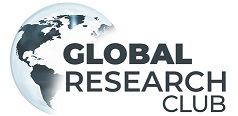اقوام کی تعمیر و ترقی میں تعلیم و تربیت کا کردار (عصری تقاضوں کے تناظر میں)
The Role of Education and Training in Development of Nations (in the Context of contemporary Demands)
Keywords:
Education, training, development of nations, contemporary challenges, social consciousnessAbstract
Education plays a fundamental role in the development of any nation. Education not only enlightens human minds but also provides guidance for their morals, character and success in practical life. Nowadays, where technology, globalization and modern ideas have created new challenges, adapting the education system to these requirements has become the need of the hour. According to Islamic teachings, education and training is considered as an important tool for the spiritual, moral and social development of an individual. The first revelation of the Holy Qur'an "Iqra" makes clear the importance of knowledge. Rasulullah ﷺ has also emphasized on gaining knowledge and building character based on it. This article presents an analysis of the role of education and training in nation building, keeping in mind the contemporary requirements. It highlights the importance of education in social, economic and political development in modern times. According to the article, education helps individuals develop social consciousness, economic independence and democratic values. Furthermore, moral training has been included as an important component of education, to provide solutions to societal problems. Problems of the current education system such as lack of quality education, lack of ethical training and lack of modern skills are also discussed. It is emphasized in the article that organizing the education and training system according to Islamic principles and contemporary requirements is necessary for the sustainable development of nations. This research highlights the need for educational and training reforms at individual and collective levels, which are important for national and global development.
Downloads
Published
How to Cite
Issue
Section
License
Copyright (c) 2025 Dr. Muhammad Usman Khalid, Hafiz Taj Din

This work is licensed under a Creative Commons Attribution-ShareAlike 4.0 International License.





